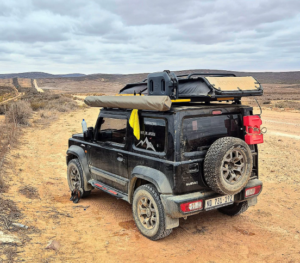Yet another community stalwart, Muhammad Amra, who enriched the lives of many during his lifetime, has left this world after a battle with Covid-19. Fuad Hendricks, former editor of Al-Qalam, pays tribute.
Marhoom Muhammad Amra, who passed away on 24 August 2021, was part of the Muslim Youth Movement generation who lived with a sense of purpose both in their individual and collective lives. He lived with a strong sense of community, developing himself and living to enrich the lives of others.
He emerged from a humble and ordinary Durban family. But he put himself to a lifetime of hard and smart work to grow and better himself, and to make his contribution to his society where he would be greatly missed.
At the end of his journey, and life on this earth, his contribution was made, and many will continue to benefit from his impact as a resourceful member of our society and country.
Apart from his leadership role in the Muslim Youth Movement and his contribution to develop many of its projects, he was one of the founders of IMPRESS (Islamic Movement Press), Islamic Forum, Islamic Development Bank Scholarship Fund in South Africa, Baitul Hikmah Islamic Books, and trustee of Islamic Centre Trust, and former director of the World Assembly of Muslim Youth (WAMY) in South Africa, and cofounder with his wife Mariam of the Wonderkids Training Institute which is a preschool, primary and eventual secondary school.
He was an institutional builder. But his impact to transform the lives of the youth so that they could enrich their lives, their families, and the wider society by living purposeful lives was perhaps his biggest value add and contribution.
But it was the key partnership decisions that were at the heart of Muhammad Amra’s success. It started with his choice of his life partner, his wife Mariam. She was a unique person in her own right, and it was her fortitude and resourcefulness which he would tap into to face the many challenges throughout his life.
I could still recall the day when he came to inform me that he met his life partner and that he proposed to marry her. Whether it was love at first sight or whatever. It was a leaping moment of joy for him and the start of building the institution of marriage which would become the characteristic prototype of the institutional partnerships he went on to build right up to the end of his life.
It was not a case that behind every successful man stands an exhausted woman. But a partnership where Mariam complemented him with her empowered management style in ways that made it possible for them to make their contribution as a team.
Character
Imam Rashid Omar of the Claremont Road Mosque, in his tribute to him, put in a nutshell Muhammad Amra’s character, intellectual culture, philosophy, and ethos.
“He was a humble servant of Allah and did so with an infectious smile. Muhammad Amra and I joined the Muslim Youth Movement (MYM) in the late 70’s from different parts of our country while we were still in our teens. In the early 80’s we served along each other in the leadership of the MYM…”
Many tributes have been written to honour and remember Muhammad Amra. All these and more convey a key message that his life was lived with a purpose, collaboration with others, building sustainable institutions serving a Higher Purpose.
Amongst others, Zeinoul Cajee of AWQAF described Muhammad Amra as a lifelong friend and supporter of the Foundation. “The community has lost a great person.”
Ahmed Sayed Moola, whose sense of community and activism is legendary, described Muhammad Amra’s “role and contribution as outstanding and formidable”.
Moulana Abdul Khaliq Allie of the Muslim Judicial Council spoke of Muhammad Amra’s memorable visit to the MJC headquarters and summed up his visit. “He engaged us on the numerous projects he was involved in…We are saddened by the passing of a man who sincerely and passionately served the ummah.”
When I asked Muhammad Amra’s son, Rashaad, how does he remember his father? He replied: “He lived his life devoted to the Islamic cause and family. He was both a loving husband and affectionate and caring father. He showed me and my other siblings by way of example how to live our lives as Muslims, rather than verbal instruction.
He was project oriented in his approach and strategy both in personal and collective life. He believed in an institutional approach because institutions would have a lifespan much longer than individuals. He overlooked the shortcomings of others, and held nothing against people, even towards those who let him down. My formative memories of childhood are of the Muslim Youth Movement training camps at As-salaam Institute and Verulam Islamic Centre.
He was inspired as a teenager by Maulana Fazlul Rahman Ansari who visited South Africa in the 70’s which led to his involvement and participation in the activities of the Muslim Youth Movement. His energy and enthusiasm for life and love for people propelled him to do things in partnership with others for the greater good of humanity and society. My siblings and I would find it hard to walk in his footsteps and the best that we can do is to stand on his shoulders and hope to build on an incredible legacy.”
At the early stage of his Covid infection, I told his son Rashaad Amra to convey a message to his father that when he recovers, he must join me for a walk on the Bloubergstrand beach. He agreed. I envisaged us walking on the beach reminiscing of the days gone by – and also to rejuvenate our friendship and brotherhood. Don Mattera, South Africa’s struggle hero and national poet advised me once that ‘brotherhood’ is the reaffirmation and endorsement of the other and one another.
The walk on the Bloubergstrand beach with Robben Island (the Isle of Grit) as the background where a unique part of our country’s history was forged would have been the ideal setting for Muhammad, all his colleagues and friends to remind us that our lives have been worthy, that our lives since our youth days – as part of the Muslim Youth Movement and other formations – have been informed that we are created by divine decree to live our lives purposefully with a sense that we are accountable to a Higher Power.
My good intention to have a walk with Muhammad Amra on the beach to broaden and deepen our reflections of this and other things did not materialise. It was not to be. Allah knows best. He has journeyed back to Allah Most High, Most Merciful. It is an inevitable journey for all humankind.
His life is a worthy book project for an aspiring author who wants to make a literary contribution to posterity by documenting inspirational lives, ‘Muslims and Islam in the South African context’.
Muhammad Amra was buried at the Browns Avenue Cemetery. It is also the burial ground where Muslim Youth Movement stalwarts Sulaiman Lockhat, ‘Isa Al-Seppe and others were buried. A memorable resting place and space that one can perhaps call ‘heroes’ acre’.
Muhammad Amra is survived by his loved ones, wife Mariam, daughter Tazkiyyah, and sons Rashaad, Abdul Qadir and Saajid.


